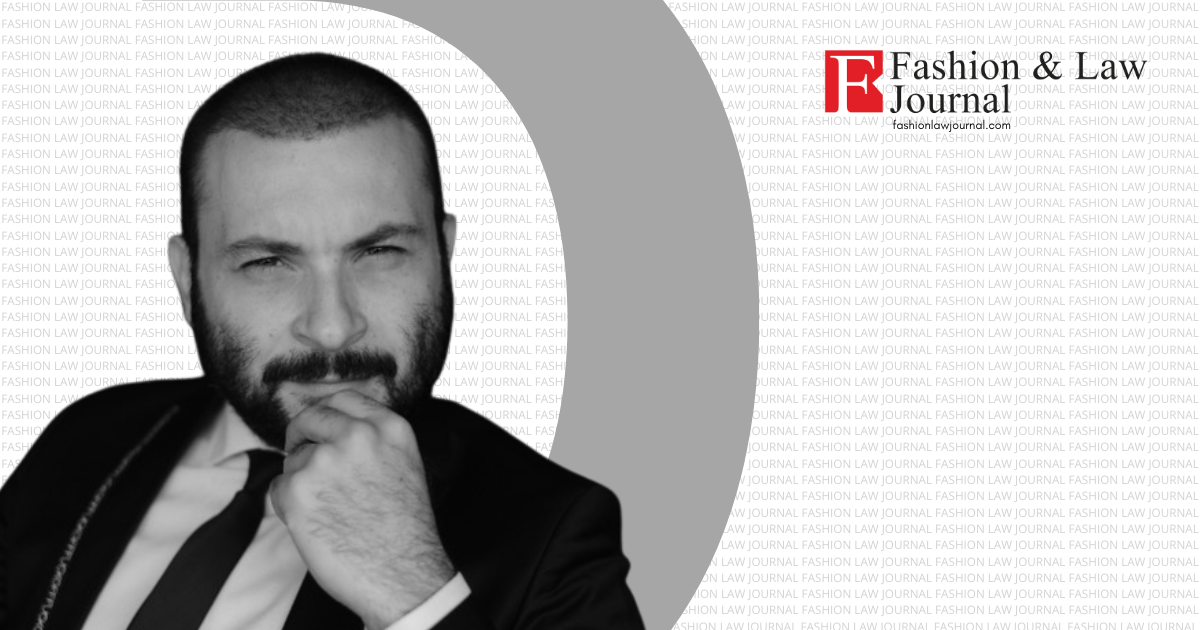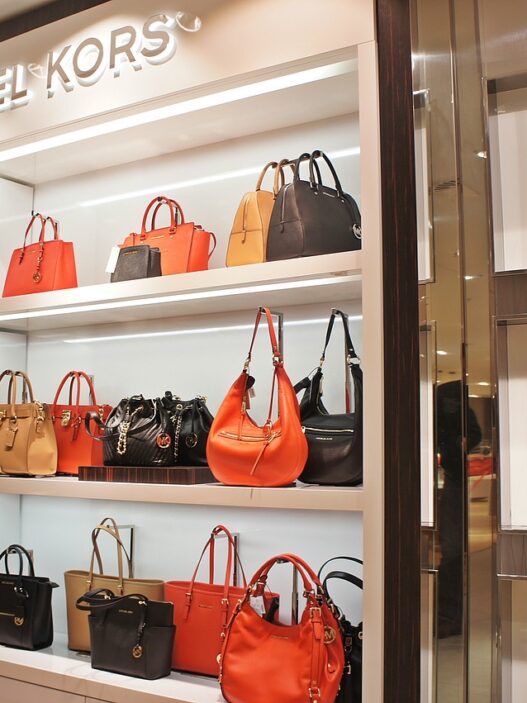In Conversation with Radha Khera, Managing Associate at Remfry & Sagar. Radha did her LLM in Fashion Law from LUISS School of Law. She shares her experience in the field of Fashion & Law. Read her candid conversation with Anuj Kumar, Founder & Editor-in-Chief at Fashion Law Journal.
Q1. Can you give a brief about your background? How has your journey been so far from a Law Student to Managing Associate, Remfry & Sagar?
After finishing my law school (Campus Law Centre, Faculty of Law, Delhi University), I wanted to experience legal knowledge on a global perspective and I pursued my first Master’s in Law from the University of Southern California, Los Angeles. Studying Intellectual Property, Entertainment law and legal issues in motions pictures ignited this flame for Intellectual Property. After my Masters, I trained with an amazing lawyer in Long Beach, and soon after joined Remfry & Sagar, a name that needs no introduction for IP. This was end of 2012 and my experience therefrom has been nothing short of a joyride!
I believe, once a lawyer, always a student! The pace at which the world around us is changing, one ought to upskill and stay on top of their game. This is good not only for competition but also serving your clients holistically! The role of a lawyer has changed – we are not merely legal advisors but also strategists and business developers. I have always loved Fashion (who doesn’t anyway)! Working with Remfry got me exposed to the Fashion industry and its peculiar needs and I decided to pursue my second Masters and be trained by the experts in the field. Luiss School of Law in Rome had a great program offering with esteemed faculty including counsel from renowned French and Italian fashion houses. I recently graduated with a second Master’s Degree and continuing my journey as an Intellectual Property and Fashion Lawyer with Remfry, better equipped to serve all brands we work for.
Q2. You are active in fashion law practice, walk us to your work in this domain. What exactly is a day to day work profile of a fashion lawyer?
As a dynamic field, the Fashion Industry witnesses multi-disciplinarian legal issues and typically, the work of a Fashion lawyer includes providing legal assistance through the life cycle of a fashion product. From setting up a brand/ company, to protection and enforcement of intellectual property, commercial transactions and agreements, supply chain management, compliances and labelling, to even issues governing manufacturing such as health and safety practices of labourers, there are many domains requiring eye for detail. In the world of Web3 with metaverses and NFTs an understanding of technology laws and influencer marketing, new age agreements, smart contracts, terms of model engagement, influencer and celebrity endorsements and liability per governing laws are just a few of the many legal issues that a fashion lawyer ought to be aware of. Issues of data privacy, product liability and consumer protection also walk along with brand strategy, labelling requirements, brand communication strategies and so much more. Incase of violations and disagreements, dispute resolution through ADR or litigation is also an essential part of the role of a fashion lawyer. Fashion is global and India is leading with globalisation. An understanding of the international market and following trends is also something that comes handy.
Q3. You pursued LLM in Fashion Law from LUISS School of Law. How was your experience?
Unfortunately, COVID peaked during the tenure of my course which resulted in few of the classes being taken remotely. Although I must confess, LUISS was extremely professional and technologically adept in ensuring that engagement in terms of assignments and practical lessons was as effective as in person lectures. From the content of the course, to the structure, faculty and guest lecturers, everyone was very accessible and helpful. I literally had the best time writing my thesis (when infact to begin with, I dreaded writing 55 pages!) with my mentor, a leading counsel from a leading Fashion Brand.
Q4. What career advice would you like to give to prospective Law students looking to break into the fashion industry?
For law students aspiring to be Fashion Lawyers, I think a good start would be to pursue a course in Fashion Law. Recently there are structured courses/ degrees on Fashion Law and It is always a good idea to begin with the right academic knowledge. One learns practically yes, but a thorough academic backing goes a long way. For others who would like to take the self-taught way, read read and read! Persistence is key and if you truly know this is your call, go for it! Fashion always sounds glamourous but as fashion lawyers we must be ready to see the flip side of Fashion as well.
Q5. According to you what are the legal issues/challenges in fashion industry, considering the advancement with introduction of metaverse, AI, Blockchain, etc in fashion?
I think the Meta-bubble/ blockchain/ NFT’s are raising legal concerns across industries and fashion happens to be one of them. The biggest challenge we’ve all been reading about pertains to protection and enforcement of intellectual property in the Metaverse. Law suits across the globe such as the MetaBirkin case, have had several brands seek protection of their trademarks in the metaverse. The IP fraternity even contemplated whether the current NICE classification is exhaustive enough to encompass protection in the meta space. Also, the concept of Trademark protection is territorial, and Metaverse is a universe without territory, increasing strategic work for and by brands. That said, since these developments and moves by brands into this space has been rather recent, the coming times would address these challenges it is hoped.
Meanwhile, if I were to personally argue the case for Metaverse and protection extending to that world, it is like someone’s social media profile – an avatar which is yours and handled by you, an extension of your reality! I see no reason why laws of the real world cannot extend to the virtual reality.
If we were to keep these issues at bay and not worry about protection or enforcement in the space, Metaverse can actually prove to be the biggest solution to sustainability concerns in the fashion industry! As an industry considered to be one contributing significantly to environmental degradation, virtual stores, virtual trial of clothes, show casing of designs prior to production (in turn saving textile waste), fashion shows on the Metaverse may have a good impact on sustainability concerns undermining several brands. Additionally, NFTs can open additional streams of revenue generation. Many brands have started selling virtually through crypto as well.
The fashion industry has been one of the most dynamic industries, but with the changes coming along in the past year or so, even the most established and renowned brands are having to re look their brand strategy to appeal to conscious millennials and digitally engaged GenZ. These are exciting times in the world of Fashion and the coming months shall throw additional light on resolving the current issues faced by the meta-indulge.
Q6. How can the counterfeit risk be mitigated?
Before I talk about mitigating risk of Counterfeiting, I feel it very important to highlight that many of us do not realise this, but when we as consumers also indulge in purchase of counterfeit products, we contribute to the running of an illegal world, one which is not only dangerous to health but also humanity!
For brand owners, it is very important to protect and enforce their intellectual property, adopting global monitoring strategies and acting at even the smallest instance of violation. I understand the world is big and one may not come across every possible instance of violation, but a strong watch service coupled with frequent market surveys, registering oneself with customs could be some ways of tackling counterfeits. If a brand is aggressive in its approach, I feel that acts as a deterrent. If on the other hand, a brand chooses not to take action against counterfeiters, it just allows them to monetise your brand value and dilute your trademark. That’s not a win for anyone – neither your brand value, nor your consumers. Brand owners have a responsibility towards their consumers, and consumers too must act responsible and not partake in purchasing decisions obviating counterfeit sales.
Q7. As we continue to see emerging influencers and digital marketing these days. How do see the placement of law and legal issues arising in this domain?
The influencer industry has boomed in the recent past and digital marketing is key strategy now-a-days for many brands. Celebrity branding has always been a part of the retail industry and influencers are not considered anything less than celebrities now-a-days, making it much easier for the law makers, consumers and brand owners to be on a legally and mutually co-existing place. Lacunae felt in the advertisement and consumer laws after witnessing an increasing trend in consumer purchase decisions basis endorsements have brought about significant changes also making celebrities responsible for their endorsements in the interest of public.
The Advertising Standards Council of India (ASCI) released Guidelines for Celebrities in Advertising directed both to the Advertiser and Celebrity. Onus was cast on celebrities to ensure due diligence before endorsing any claims. Influencer Advertising Guidelines for Digital Media were also released by ASCI recently pursuant to which disclosure of ‘material connection’ between the advertiser and the influencer is mandatory. Such material connection includes even receiving free or unsolicited gifts, trips etc.
The Indian Government has also been taking steps to regulate digital and influencer marketing and recently The Central Board of Direct Taxes issued new guidelines on influencer taxes. Social media influencers are now liable to pay tax deducted at source (TDS) on gifts/ freebies received or other forms of payments made in kind, if the value of the product is above INR 20,000 (approximately USD 250).
New guidelines for Prevention of Misleading Advertisements and Endorsements for Misleading Advertisements, were also notified by the Central Consumer Protection Authority for prevention of false or misleading advertisements and endorsements.
I feel changes like these amply communicate that any portal making consumers susceptible to making purchasing choices is not free from review/ scrutiny. In my opinion, the current laws in place seem to be at par with the requirement at this juncture. For anything else that may not be covered, well drafted and well-structured agreements between brands and celebrities/ influencers of social media platforms, may be resorted to incase of any conflicting situation.
Follow us on Instagram for exclusive content @fashionlawjournal


















